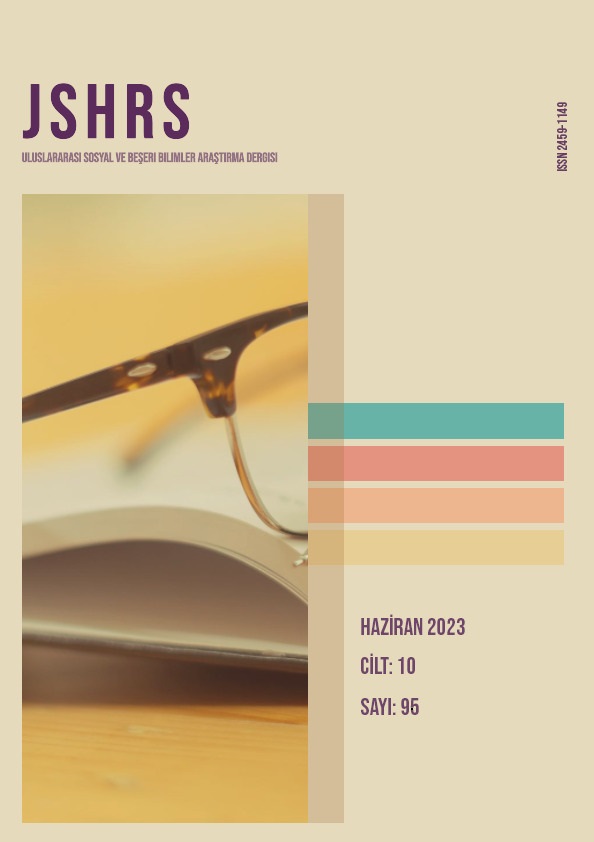Examination of Secondary School Students According to their Psychosocial Levels and the Status of Sports Activities
DOI:
https://doi.org/10.5281/zenodo.8055662Keywords:
Sports, Student, PsychosocialAbstract
Along with education, students and the next generations to be formed by students become the basis of society. It is important that customs and traditions are taken into account in the effectiveness of the foundation of society, and that all cultural, moral, and spiritual dimensions are included in the process. However, although the psychological processes and the social dimension are very important, they can be decisive in strengthening the identity development of students. Although it is important to maintain vital activities in society, to protect against attacks, to ensure life safety, and to carry out other important activities, the concept of "education" has also been included in the processes that are mandatory. If we come to the present day as in the past years, it is very important to have an education in order to live a more comfortable life. Exercising has many positive effects on individuals. Exercising can improve both physical and mental health. Considering the positive aspects of sports, it is obvious that regular and continuous sports activities for individuals of all ages, whether students or adults, will have a very positive effect.
The aim of this research is to evaluate the relationship between psychosocial levels and the state of sports activities in secondary school students. In this context, the method of the research was determined as the relational screening model, which is among the quantitative research methods. The research was formed in the universe of students studying in special status secondary schools in the province of Istanbul in the 2022-2023 academic year (between March and April). Research data were collected from a sample of 174 students who were studying in secondary schools and voluntarily accepted to participate in the research. After the data were collected, the questionnaires were transferred to Microsoft Excel and SPSS data templates. Afterward, analysis processes were carried out using the SPSS 25 program. 72.98% of the 174 students participating in the research are 12 years old and 60.91% of them do sports. It has been determined that 71.69% of those who do sports have been doing (starting) this sport within 1-2 years. In the study, it was determined that there was no significant difference between the psychosocial levels of secondary school students and sports activities.
References
Akgül, A. ve Çevik O. (2005). İstatistiksel analiz teknikleri: spss’te işletme yönetimi uygulamaları. Emek Ofset.
Ateş, S., İncirli, A., Karadeniz, O. ve Kapucubaş, M. (2018). Sosyal bilgiler ders kitaplarında eski türkler: türkiye ve türkmenistan. Uluslararası Sosyal Bilgilerde Yeni Yaklaşımlar Dergisi, 2 (1), 70-85.
Demir, G. T. (2022). Spor, e-spor ve dijital oyun bağımlılığı. Ankara: Gazi Kitabevi.
Efe M, Öztürk F, Koparan Ş, ve Şenışık Y. (2008). 14-16 Yaş grubu erkeklerde voleybol çalışmalarının sosyal yetkinlik beklentisi ve atılganlık üzerine etkisi. Uludağ Üniv Eğitim Fakültesi Dergisi, 21 (1),69-77.
Kale, N. ve Pero, D.D. (2021). Spor ve Felsefe. Nobel Akademik Yayıncılık.
Nardemir, E. (2019). Yüzme sporu yapan çocukların hayal etme gücünün spor tatmini üzerindeki etkileri. [Yayımlanmış Yüksek Lisans Tezi], İstanbul Üniversitesi-Cerrahpaşa, Lisansüstü Eğitim Enstitüsü, İstanbul.
Öztürk, M., Ek, S., Kocatüfenk Yıldız, Ö., Kuşçu, H., Yörük, D. ve Yıldız, H. (2022). Eğitim-öğretim dönemindeki çocuklara büyük taarruzun resimlerle aktarılması: bir masal kitabı incelemesi. Academic Knowledge, 5 (2), 292-312.
Süt, MA. (2014). Ortaöğretim öğrencilerinin spor yapma düzeylerine göre sosyal beceri özelliklerinin karşılaştırılması (Gaziantep İli Örneği). [Yayımlanmış Yüksek Lisans Tezi], Ondokuz Mayıs Üniversitesi, Sağlık Bilimleri Enstitüsü, Samsun.
Tabachnick, B.G. & Fidell, L.S. (2013). Using multivariate statistics (6th ed.). Pearson Publishing, Boston.
Uslu, A. (2016). 10-20 yaş arası eğitilebilir ve öğretilebilir durumdaki bedensel engelli bayan ve erkek sporcuların açık ve kapalı alan etkinliklerinde yürütülen spor eğitiminin motor becerileri üzerine etkilerinin değerlendirilmesi. [Yayımlanmış Yüksek Lisans Tezi], İstanbul Gelişim Üniversitesi, Sağlık Bilimleri Enstitüsü, İstanbul.
Yıldız, E. ve Çetin, Z. (2018). Sporun psiko-motor gelişim ve sosyal gelişime etkisi. H.Ü. Sağlık Bilimleri Fakültesi Dergisi, 5 (2), 54-66.
Downloads
Published
How to Cite
Issue
Section
License
Copyright (c) 2023 INTERNATIONAL JOURNAL OF SOCIAL HUMANITIES SCIENCES RESEARCH

This work is licensed under a Creative Commons Attribution 4.0 International License.


